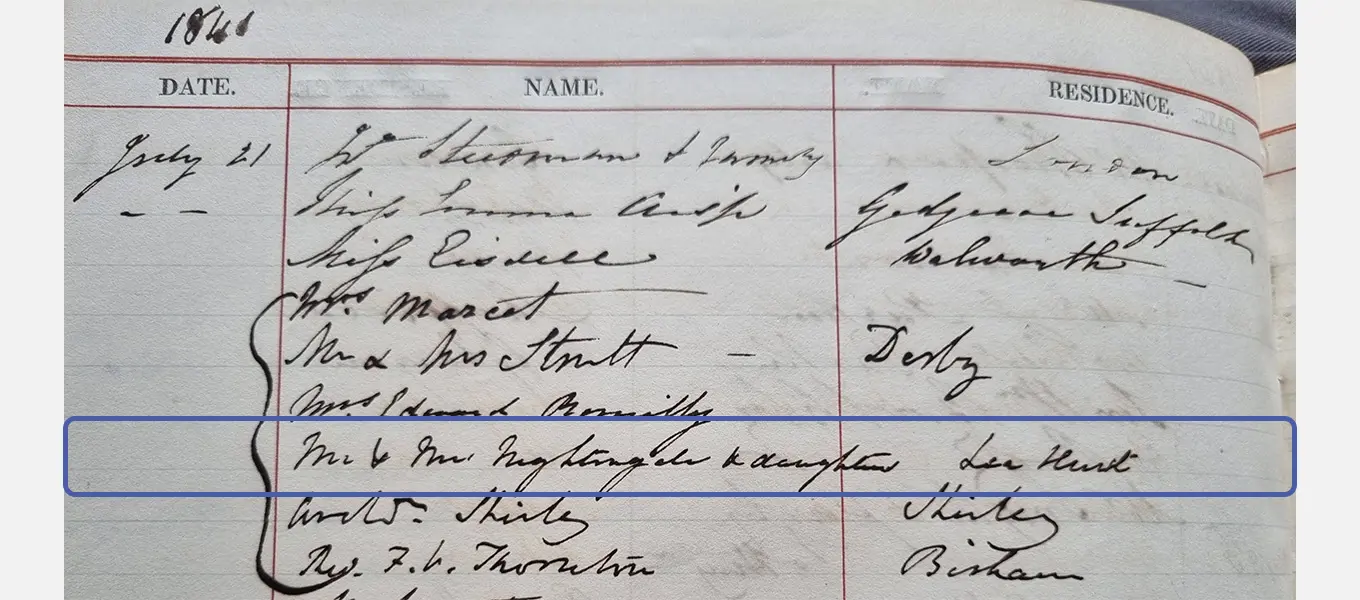Following several blog posts about aristocratic male visitors to Chatsworth in the 19th century, this one focuses on a famous woman.
On 21 July 1841, a wealthy couple from Lea Hurst in Derbyshire signed into the Chatsworth visitors’ book, and signed their daughters in too. The daughters are not named, but judging by the surname and their place of residence, one of them would later become a household name.

The entry reads ‘Mr and Mrs Nightingale and Daughters’. Lea Hurst was a childhood home of Florence Nightingale, of whom many of you will have heard. Since she wasn’t yet famous in 1841 she was probably treated in the same way as all the other visitors who came that day.
Florence Nightingale was born in the city of Florence, where her parents were staying on a tour of Europe, in 1820. She is best known for working as a nurse during the Crimean War of 1853-1856. That war saw Russia pitted against Britain, France, Turkey and Piedmont-Sardinia (now part of Italy). When it started, conditions in military hospitals were dire. Food and medicines were scarce and hygiene was neglected. Nightingale led a team of nurses who cleaned up filthy hospitals and improved standards of care. In May 1855, Nightingale herself fell ill but was nursed back to health by Eliza Roberts.
In recent years, some commentators have claimed that Nightingale’s ability as a nurse was exaggerated by the Victorian press. Others dismiss these criticisms and say they are not supported by primary sources. Nightingale certainly reformed nursing in Britain after the war. She raised the standard of training for nurses. She pioneered the use of statistics in medicine. She campaigned for improvements in sanitation, both in military and in civilian life. Some would argue that these reforms were more important than her nursing in the Crimea.
When they called at Chatsworth, the Nightingales set out from Lea Hurst, a country house designed by Florence’s father William. It was unusually small and intimate for the home of such a wealthy family, although it still had fifteen bedrooms. It was also unusual in blending with its surroundings, being made of the same local stone as more modest homes nearby. It sits near Matlock, not far from the River Derwent that also flows near Chatsworth. Today it is a hotel with a suite named after Florence.
While the Nightingale family came to Chatsworth as general visitors in 1841, once Florence’s fame had been established, they would be invited back to the house as honoured guests of the 6th Duke of Devonshire. You can read more about Florence Nightingale and the 6th Duke in this blog post from 2020.






